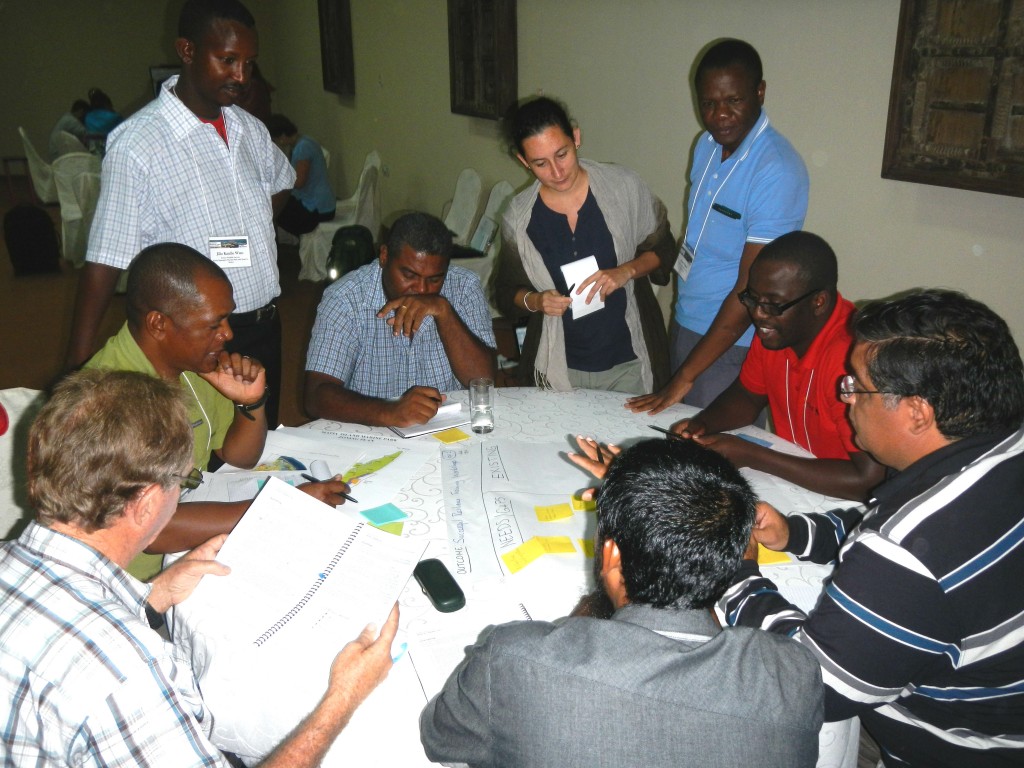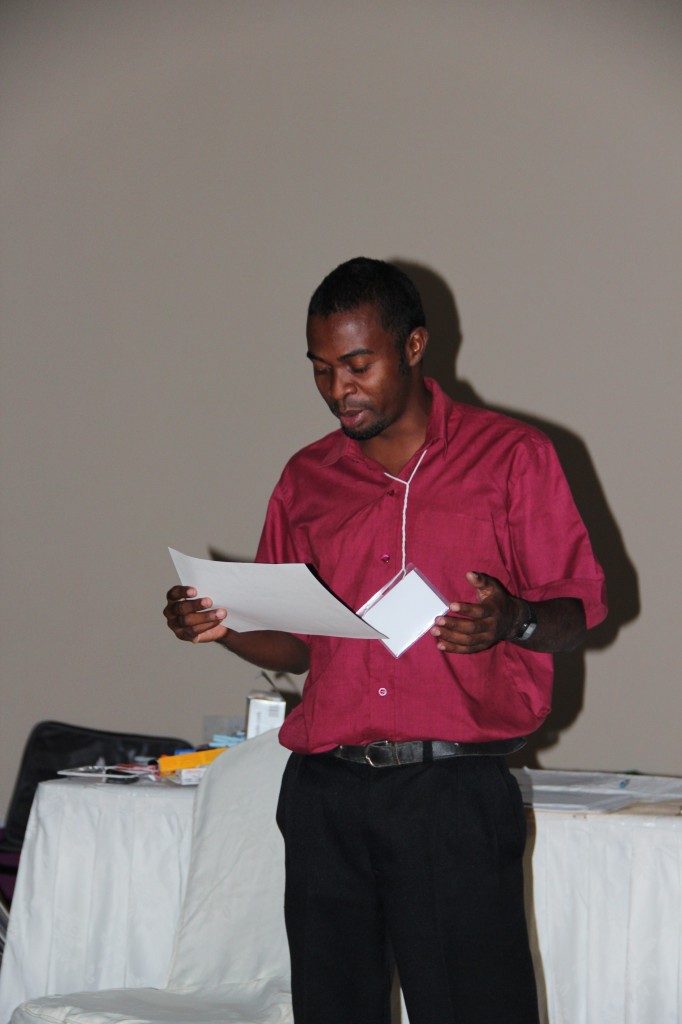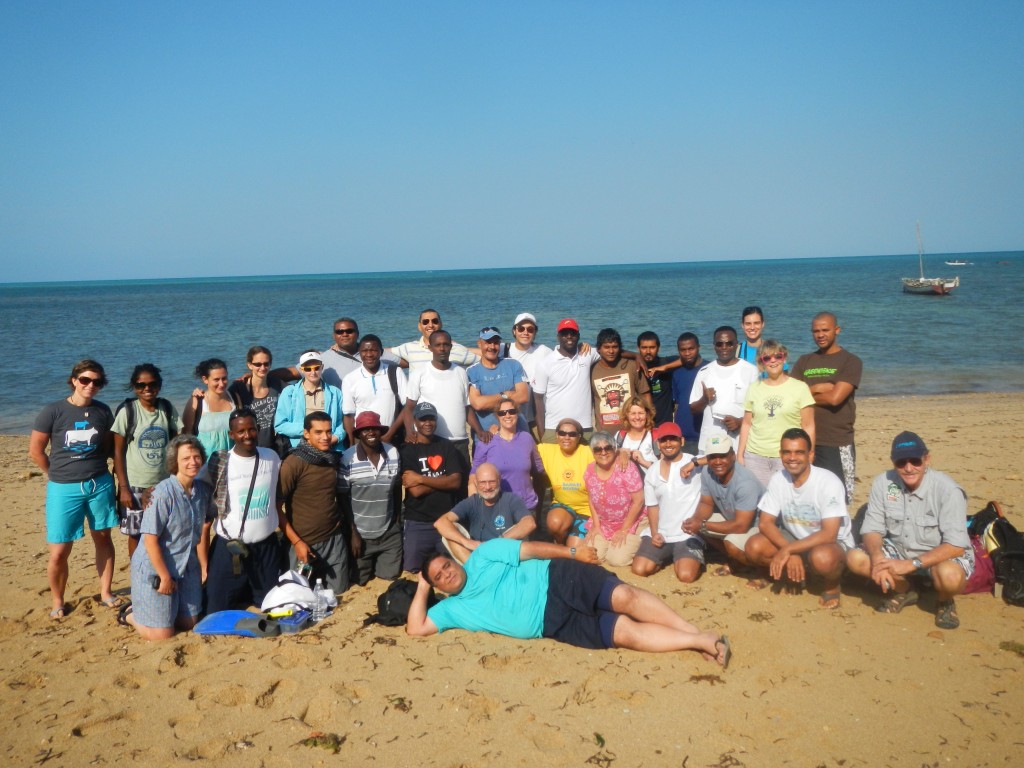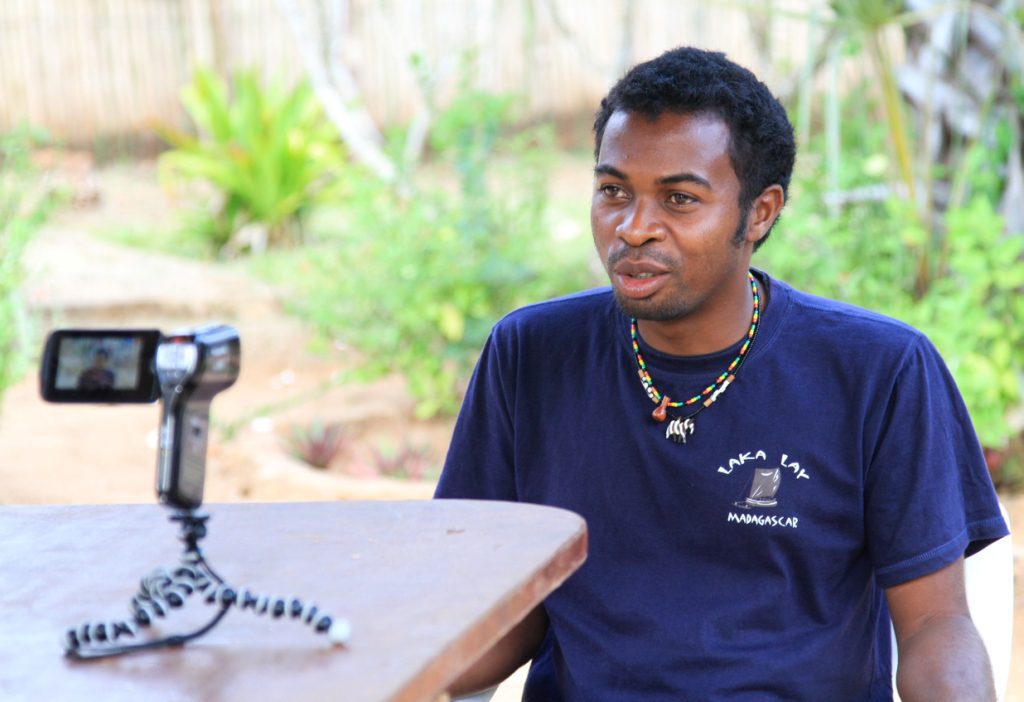by Rado Lebely Botosoamananto, Terrestrial & Fisheries Scientist, Madagascar
I was told the first time I travelled outside of Madagascar, that while this may be a first for me, it won’t be the last time I leave; and it must be true as in June I once again found myself abroad for an unforgettable few weeks in Zanzibar. Three months before, I enrolled on an online course about Climate change and Coral Reef Resilience with The Nature Conservancy (TNC). I was very excited about learning more about coral reefs, so I jumped at the chance to learn new things – and make as much as I could of the opportunity. A challenge that I didn’t take in consideration is the strength (or lack thereof) of the internet in BV’s field sites, and was worried that I was behind others on the course.
Last year when I went to Kenya with EDGE, I didn’t know anyone and was nervous about meeting the others attending the course. However, everyone was very friendly and I made some great new friends. On my way to Zanzibar I tried to find the three other Malagasy participants who should have been on the same plane as me. I already knew one of them, but the others were strangers who I had heard of through the conservation community. I never did manage to find them, either on the plane or in the airports in Nairobi or Antananarivo. However, as I had been to Kenya last year, I did meet my friends from last year’s workshop, friends I thought I might not see again. It was great to see them and reminisce about the good times we had in Kenya on the workshop.

The participants in Zanzibar split into groups (Photo credit: Cherie Wagner, The Nature Conservancy)
In the end it turned out that one of the other Malagasy participants recognised me on the plane, but was too shy to come and say hello. However, once we were in Zanzibar, everyone became friends and got to know each other. Having never really left Madagascar, it was strange to meet people from different places and cultures, but like in Kenya last year, it didn’t take long to meet everyone – especially considering some of them I already knew from the Kenyan workshop!

Rado talks about his project during the course (Photo credit: Cherie Wagner, The Nature Conservancy)
The workshop was two weeks long, with one week about new approaches to marine conservation including science theory, sociology, MPA Management and coral reef management. There were subjects and methods that I have used while working for BV, but some were completely new; for example, I had never learned how to facilitate a meeting. My favourite however was the field work, which was done in the local marine protected area (MPA). It was special as through the new things I learned, I could survey much better – using different evidence I could decide whether the reef was resilient or not. I usually tend to dive in sites that qualify as healthy with good coral cover, but now I realised that coral cover alone is not enough to decide whether a reef is healthy.

The attendees of the course pose for a group photo – Rado is 5th from the left, on the top row (Photo credit: Cherie Wagner, The Nature Conservancy)
Gatherings of scientists and conservation practitioners are really important as you can share experiences, knowledge and problems with others – and apply that learning to the real world. TNC and the Reef Resilience Network also encourage the trainees to become the trainers, this way the problems of coral reef management can be shared on an international level – and I am happy to be a part of it.


